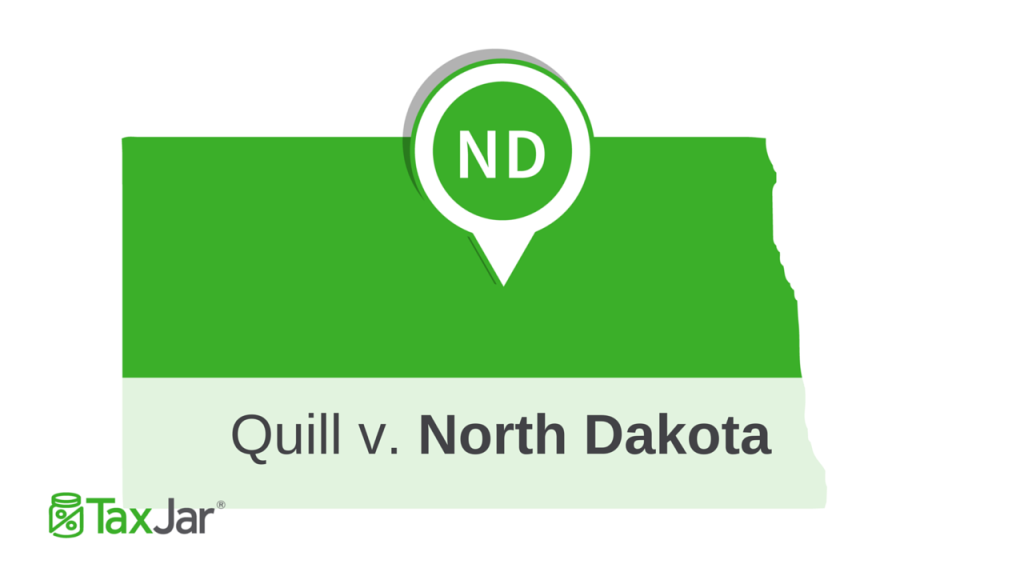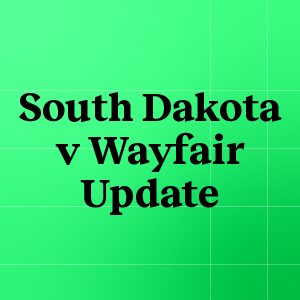Quill Corp v. North Dakota
by March 17, 2017
If you’ve sold anything online before then you’ve undoubtedly heard of Quill Corp. v. North Dakota at some point. We’ve even cited it here on the blog quite a bit.
In fact, it has recently become one of the most cited Supreme Court rulings in state due to the advent of eCommerce. Every time the conversation comes up or there’s a blog written about eCommerce and sales tax, the ruling is mentioned as “how things used to be.”
But what many people don’t know are the details of the case. What exactly is Quill v. North Dakota? How did it change the world of eCommerce even before eCommerce really became a thing? How is the ruling still affecting online sellers to this day? Let’s take a look.
Origins of Quill
The Quill Corporation is an office supply retailer. Back in the early ’90s online shopping wasn’t nearly as prevalent as it is now. In fact, to put this in real context, at the time of the Quill v. North Dakota ruling the World Wide Web (the internet as we know it today) had only been in existence a short time. So businesses weren’t exactly selling on eBay yet. (Because eBay didn’t even exist until 1995!)
What Quill had was a software program. Their customers and distributors would use the software to check the company’s current inventory and place orders directly. It might not seem like much now, but back then it was a big deal. Think about it – no going to the store or even calling someone? Just hit a few buttons and your item shows up in the mail a week or two later? This just wasn’t done in those days.
To accentuate this, North Dakota had a huge problem with the software; namely, they thought it was eating into their sales tax revenue. Quill didn’t actually have nexus in the state as they had no physical presence – no offices, no sales people, no company vans, nothing. But North Dakota thought the software DID give Quill nexus. To prove their point, they went so far as to argue that Quill’s floppy disks in the state created a physical presence.
Quill disagreed and took the state to court to fight it. It went all the way to the Supreme Court, where the decision was made to uphold the earlier ruling National Bellas Hess Inc v. Department of Revenue of Illinois, a similar decision about mail or “common carrier” commerce. There, justices analyzed the Commerce Clause of the constitution, which gives the federal government the power to prevent states from taking action that will restrict commerce. So what happened?
The Results
The Quill v. North Dakota decision meant that states like North Dakota couldn’t make a claim on sales taxes for a company like Quill that only had software – not a physical presence – in the state. The same precedent was later assumed to apply to online companies as well when the “World Wide Web” took off.
This in turn led to the proliferation and success of websites like eBay and Amazon. Since they didn’t have much (or any) sales tax to worry about in states where they didn’t have physical presence, sellers could create a store and start selling across the country and the world and just bring in profit without having to worry about tricky things like sales tax compliance outside of the states where they had offices, employees or warehouses.
There’s no doubt eCommerce would look totally different these days if the Quill decision had gone the other way. eBay and Amazon may have existed but it’s unlikely they would have grown as quickly if they’d been dealing with sales tax compliance in all 45 U.S. states with a sales tax. The lack of sales tax was a huge plus to people just wanting to start up a small store or just sell a few items, giving these sites tons of business they might not otherwise have.
Now, though, we have states trying to change things. Like North Dakota, they feel like they’re owed money out of the massive pot of gold moving around the web. And while we often think this is overreaching and unfair, the original ruling actually gave states leeway.
Part of the Quill v. North Dakota ruling includes a caveat: the court made sure to include that Congress can overrule the decision through future legislation. This is what we’re seeing today with potential bills like the Marketplace Fairness Act, the Remote Transaction Parity Act, and the Sales Tax Simplification Act.
Where will internet sales tax land? At TaxJar, we keep a close eye on this issue as it pertains to online sellers. In our view, the only right way to handle internet sales tax is to ensure that it is fair and not punitive for the online sellers that drive today’s economy. You can read a whole lot more of our internet sales tax news and opinion here.
This post was updated March 17, 2017 to reference more current internet sales tax legislation









